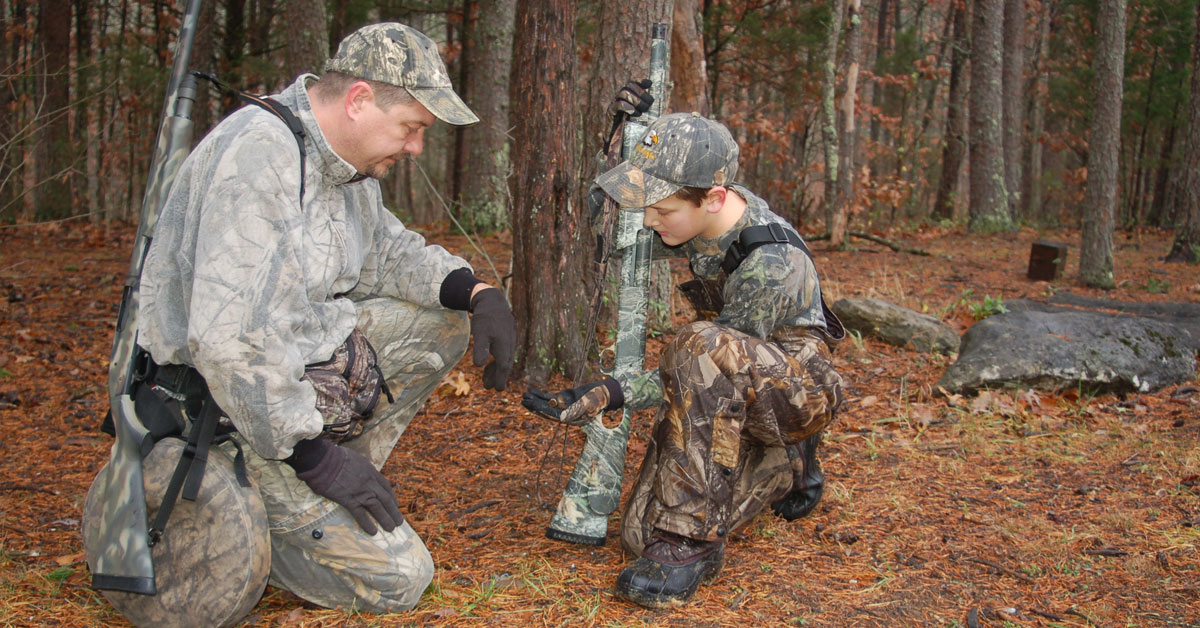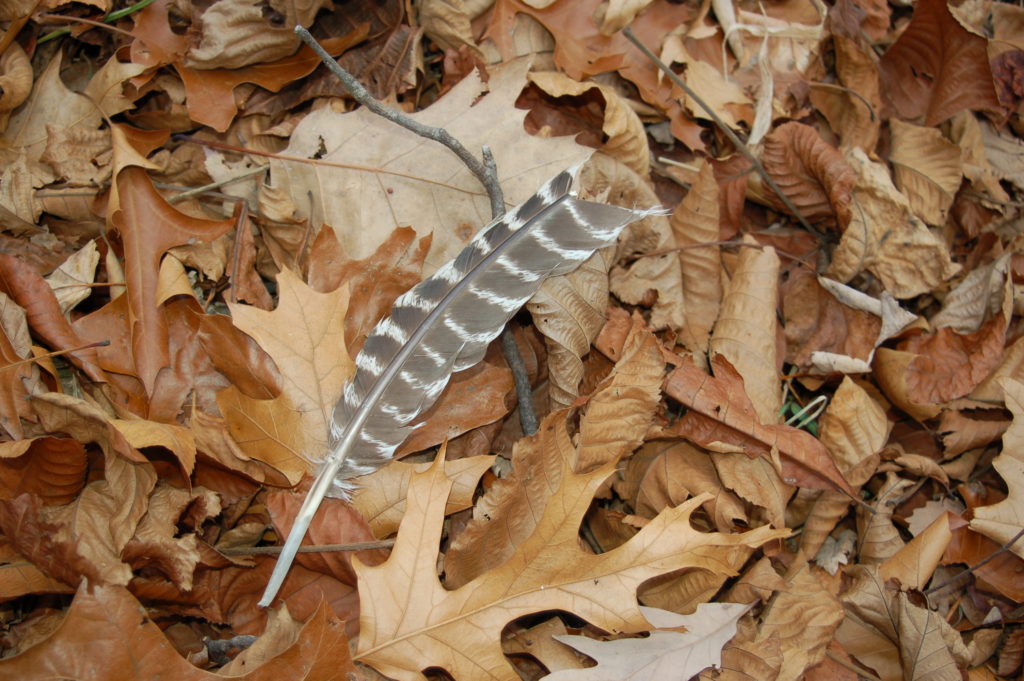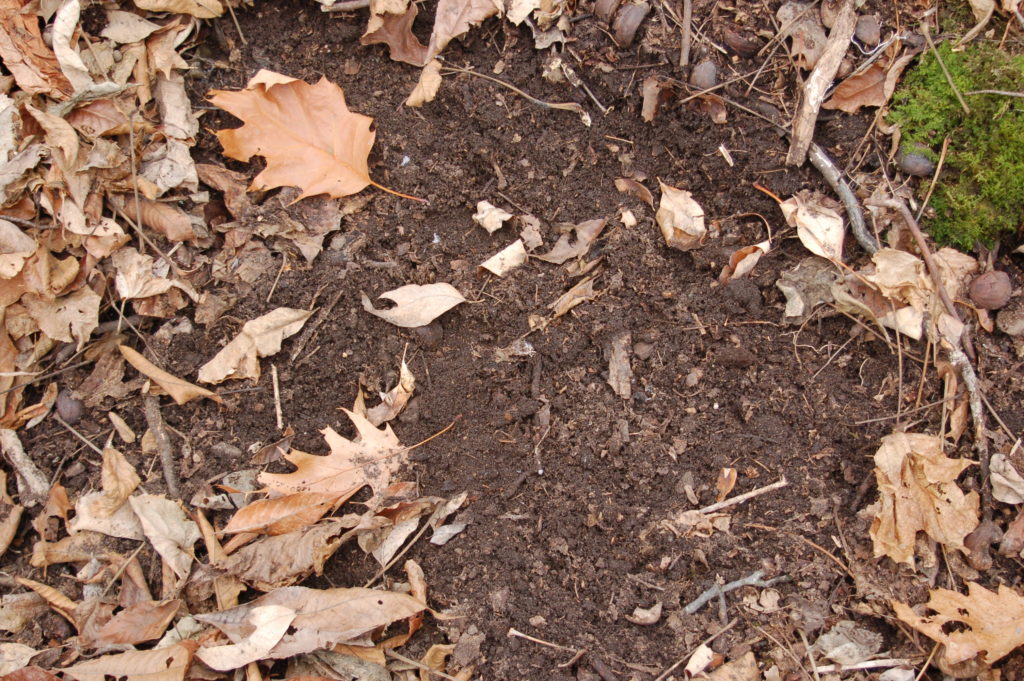
Passing on the tradition of fall turkey hunting is a worthwhile undertaking.
By Bruce Ingram
In the autumn of 1986, I was fortunate to have Winchester’s Jim Clay, who then and now operates Perfection Turkey Calls, to shepherd me on my first fall turkey hunt and become my mentor. More than three decades later, I still call him for advice. Fall turkey hunting, according to DGIF turkey biologist Gary Norman, is underutilized in this state, but the pastime remains a grand way to connect with the outdoors. Clay says that’s because practicing woodsmanship is the key to success.
“Fall turkey hunting is all about reading sign and learning the foods that the birds eat,” he told me. “Finding turkey feathers, droppings, and scratching gives you clues on where the birds are feeding and travelling and learning how to age that sign gives you clues on how long ago a flock was present.

Finding sign like this feather is often a key to fall turkey hunting success.
“Fall turkeys eat an incredible variety of wildlife foods. To find a flock, you’ll have to learn if the birds are keying in on acorns, or if the acorn crop failed, whether they are feeding on soft mast foods like grapes and dogwood berries. Or maybe the birds are spending much of their time in fields feeding on grasshoppers and beetles.”

Fresh scratching like this means a flock is near.
Clay says that reading and analyzing sign and determining food sources is both endlessly fascinating and challenging. Once we have solved those puzzles and found a flock, the next step is to scatter a gang of birds and call them back. It is very difficult to call in an entire flock because a hunter could have a dozen or more set of eyes watching his every movement, and a turkey’s sense of sight – and hearing for that matter – is far superior to ours. Busting a flock gives us a chance to call in a bird for a one-on-one situation.
“If you’re a novice turkey hunter, the best caller to use is a push-pin, which is very simple to operate” says Clay. “It’s a great device for making yelps, clucks, and purrs. Slate and box calls are fairly easy to master and can make a number of additional sounds. Mouth calls are the most difficult ones to learn how to operate, but they’re best for making kee-kees – the call that young turkeys make when they’ve been separated from their flock.”
The Virginia State Chapter of the National Wild Turkey Federation is a great source for folks who would like to gain turkey mentors. For more information: vanwtf.com.


